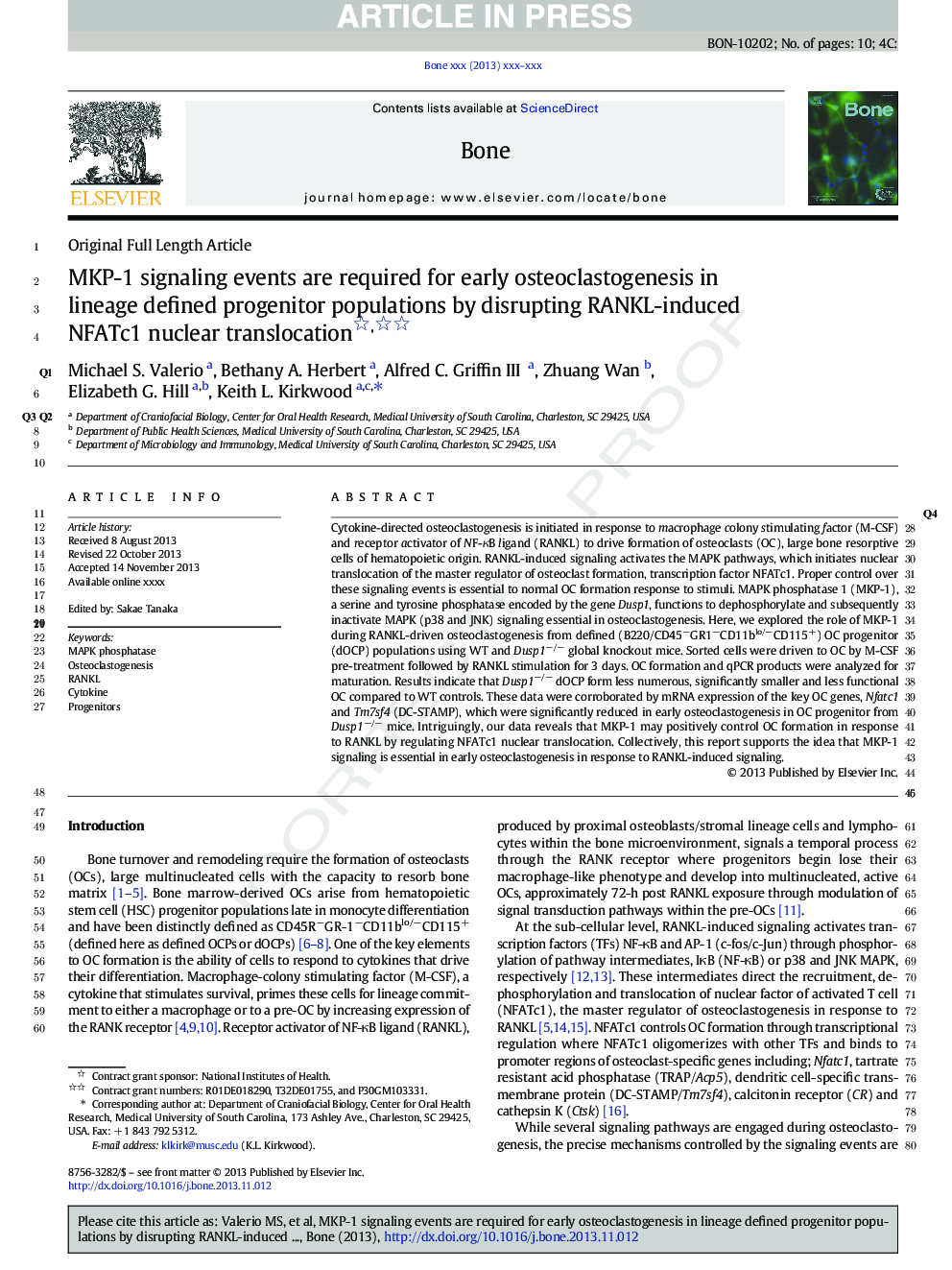| کد مقاله | کد نشریه | سال انتشار | مقاله انگلیسی | نسخه تمام متن |
|---|---|---|---|---|
| 5890408 | 1568159 | 2014 | 10 صفحه PDF | دانلود رایگان |
عنوان انگلیسی مقاله ISI
MKP-1 signaling events are required for early osteoclastogenesis in lineage defined progenitor populations by disrupting RANKL-induced NFATc1 nuclear translocation
دانلود مقاله + سفارش ترجمه
دانلود مقاله ISI انگلیسی
رایگان برای ایرانیان
کلمات کلیدی
موضوعات مرتبط
علوم زیستی و بیوفناوری
بیوشیمی، ژنتیک و زیست شناسی مولکولی
زیست شناسی تکاملی
پیش نمایش صفحه اول مقاله

چکیده انگلیسی
Cytokine-directed osteoclastogenesis is initiated in response to macrophage colony stimulating factor (M-CSF) and receptor activator of NF-κB ligand (RANKL) to drive formation of osteoclasts (OC), large bone resorptive cells of hematopoietic origin. RANKL-induced signaling activates the MAPK pathways, which initiates nuclear translocation of the master regulator of osteoclast formation, transcription factor NFATc1. Proper control over these signaling events is essential to normal OC formation response to stimuli. MAPK phosphatase 1 (MKP-1), a serine and tyrosine phosphatase encoded by the gene Dusp1, functions to dephosphorylate and subsequently inactivate MAPK (p38 and JNK) signaling essential in osteoclastogenesis. Here, we explored the role of MKP-1 during RANKL-driven osteoclastogenesis from defined (B220/CD45âGR1âCD11blo/âCD115+) OC progenitor (dOCP) populations using WT and Dusp1â/â global knockout mice. Sorted cells were driven to OC by M-CSF pre-treatment followed by RANKL stimulation for 3 days. OC formation and qPCR products were analyzed for maturation. Results indicate that Dusp1â/â dOCP form less numerous, significantly smaller and less functional OC compared to WT controls. These data were corroborated by mRNA expression of the key OC genes, Nfatc1 and Tm7sf4 (DC-STAMP), which were significantly reduced in early osteoclastogenesis in OC progenitor from Dusp1â/â mice. Intriguingly, our data reveals that MKP-1 may positively control OC formation in response to RANKL by regulating NFATc1 nuclear translocation. Collectively, this report supports the idea that MKP-1 signaling is essential in early osteoclastogenesis in response to RANKL-induced signaling.
ناشر
Database: Elsevier - ScienceDirect (ساینس دایرکت)
Journal: Bone - Volume 60, March 2014, Pages 16-25
Journal: Bone - Volume 60, March 2014, Pages 16-25
نویسندگان
Michael S. Valerio, Bethany A. Herbert, Alfred C. III, Zhuang Wan, Elizabeth G. Hill, Keith L. Kirkwood,